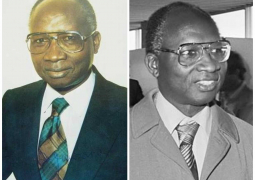The Gambia has an active association (SCAG) that has been committed to the fight against sickle cell disease for over 15 years. It carries out awareness campaigns, organizes screening initiatives, and collaborates with various partners to improve care and support for patients.
Sickle cell disease is a serious genetic disorder, but it is preventable through appropriate screening and education strategies. In The Gambia, although the disease is significantly present, public health initiatives still need to be strengthened to better identify, prevent, and treat this silent but severe condition.
In The Gambia, there is indeed an association dedicated to individuals with sickle cell disease. It is the only recognized organization in the country that provides support to those living with the condition.
Sickle Cell Disease: General Definition and Global Context
Sickle cell disease, also known as sickle cell anemia, is a hereditary genetic blood disorder that affects hemoglobin, a protein found in red blood cells. It is caused by a mutation in the HBB gene, responsible for producing normal hemoglobin (HbA). In affected individuals, this mutation produces an abnormal form known as hemoglobin S (HbS).
Main Characteristics:
- Red blood cells take on a sickle shape (hence the name "sickle cell") instead of their normal round shape.
- These deformed cells block small blood vessels, causing acute pain episodes known as sickle cell crises.
- They break down faster, leading to chronic anemia.
- The disease can cause severe complications: frequent infections, strokes, organ damage, etc.
Global Situation:
- Over 300,000 children are born each year with sickle cell disease worldwide.
- It is highly prevalent in tropical regions, particularly sub-Saharan Africa, but also affects people of African descent in the Americas, Europe, India, and the Middle East.
- The WHO classifies sickle cell disease as a major public health concern in several African countries.
Sickle Cell Disease in The Gambia
Local Context:
- Sickle cell disease is present in The Gambia, as in many West African countries, due to the high prevalence of the hemoglobin S gene in the population.
- Efforts in screening and awareness remain limited, especially in rural areas, despite the risks associated with late or no diagnosis.
Prevalence in The Gambia:
- According to local and regional studies, around 10% to 20% of the Gambian population are carriers of the sickle cell trait (i.e., heterozygous individuals, healthy carriers with no symptoms).
- About 1% to 2% of newborns are affected by the severe form of sickle cell disease (homozygous HbSS).
Key Challenges:
- Lack of systematic neonatal screening infrastructure.
- Limited access to specialized care and medications like hydroxyurea.
- A need to strengthen community awareness, especially to encourage premarital or preconception testing.
Sickle Cell Association Banjul Chapter (SCAG)
- Founded in August 2007 at the University of The Gambia by two friends: Founder Mr. Andrew Sambou and Co-founder Ms. Njaimeh Mboge. It was officially registered on October 13, 2007, in Banjul.
- Mission: Raise awareness, improve quality of life, and support families affected by sickle cell disease.
- Strategic Objectives: Disseminate information, provide moral and financial support to patients, and collaborate with authorities (Ministries of Education and Health, NGOs, banks, etc.).
Contact Information:
- Address: Serekunda, Sulyman Nimaga Street (scagambia.org)
- Phones: +220 3581498 / +220 7438288 / +220 6015382
- Email: sicklecellassngambia@gmail.com
Activities and Partnerships
Awareness Month Commemoration:
Every year in early September, SCAG organizes symposiums (e.g., at the American Corner, Kairaba Avenue) or a solidarity march in Greater Banjul with all members and supporters of the association.
Institutional Partnerships:
Ministries of Education (MoBSE), Health, and Environment; GT Bank; Red Cross; Africa Sickle Cell Foundation; and Novartis (for access to hydroxyurea).
Member Training:
Educational sessions on the disease, its effects, and prevention are conducted by professionals such as Dr. Abdoulie Secka, Dr. Momodou Koto, Bella Jallow, Dr. Kalipha K. Kassama, and Dr. Bubacarr Susso.
Screening and Detection:
- Promotion of community-based cascade testing at RVTH in Banjul (pubmed.ncbi.nlm.nih.gov).
- Deployment of HemoTypeSC kits for neonatal and community screening (paediatricsthegambia.com).
Read Other Articles In Opinion

TRRC: The making and workings of a model truth commission Baba Galleh Jallow
Aug 9, 2024, 12:22 PM



